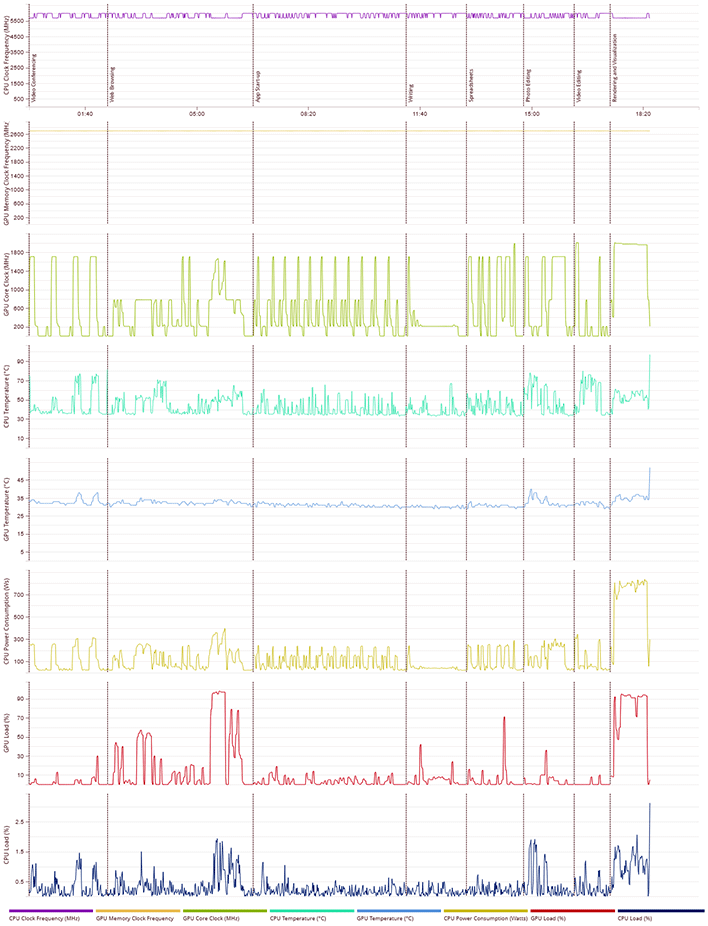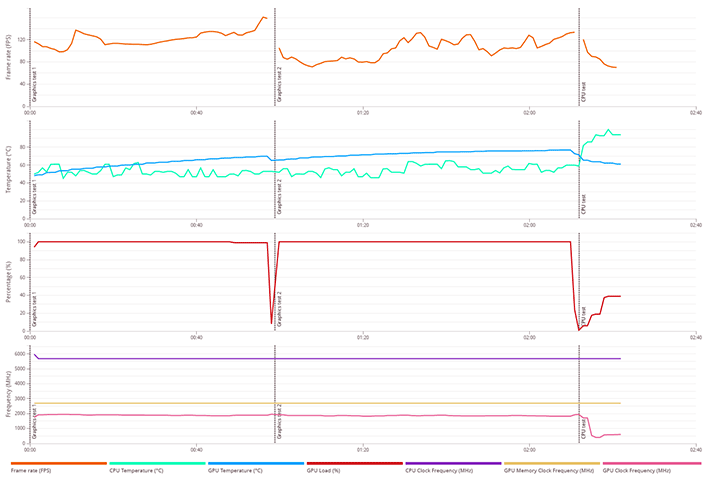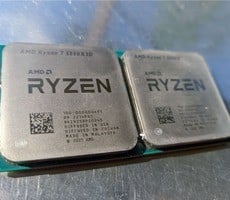Intel 14th Gen Core Raptor Lake Refresh Benchmarks: MOAR Power
UL 3DMark CPU Physics Benchmark
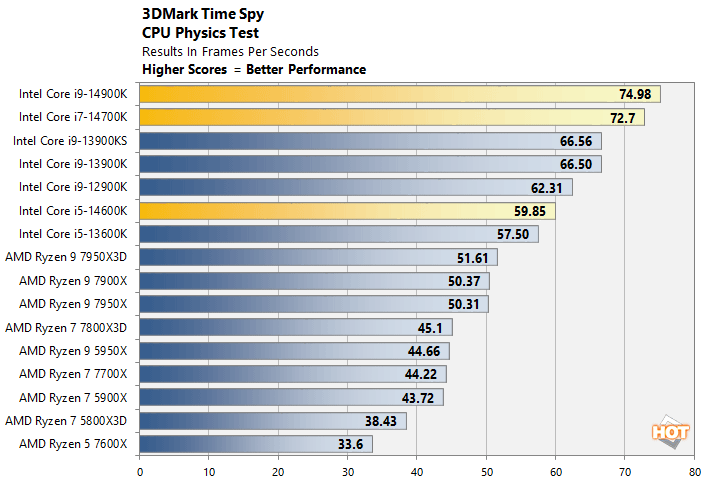
Our results in 3DMark's Physics test look much like the computational fluid dynamics test on the previous page. Once again we see the Core i9-14900K in the overall lead, followed by the Core i7-14700K, with the Core i5-14600K finishing a notch above the 13600K, but well ahead of any of the Ryzen processors.
High And Low Resolution Gaming & Graphics Benchmarks
We also ran some mid and high-resolution game and graphics tests on our test rigs with 3DMark, F1 2021, Metro Exodus, Shadow Of War and Shadow Of The Tomb Raider. We used 3DMark's default Time Spy preset, and the games were run in two different configurations -- either 1080p with Medium/High details, or 4K with High/Extreme details. The lower resolution tests are more CPU bound to somewhat isolate processor performance, while the higher resolution tests are more GPU bound.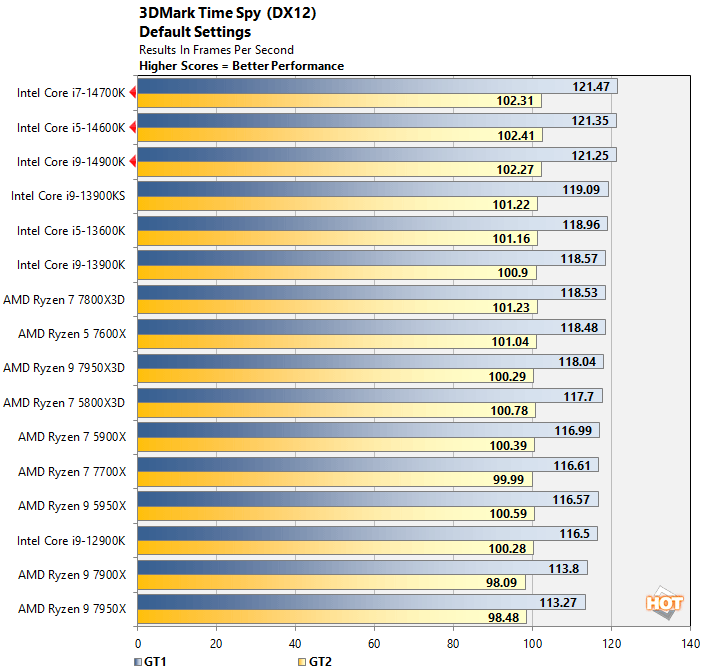

In the overall 3DMark Time Spy scores, the new Core i9-14900K and Core i7-14700K finish in the 1 and 2 positions, at the top of the charts. The Core i5-14600K is also in the mix at the top of the charts, technically speaking, but we're talking about a relatively small spread from about the middle of the pack on up.
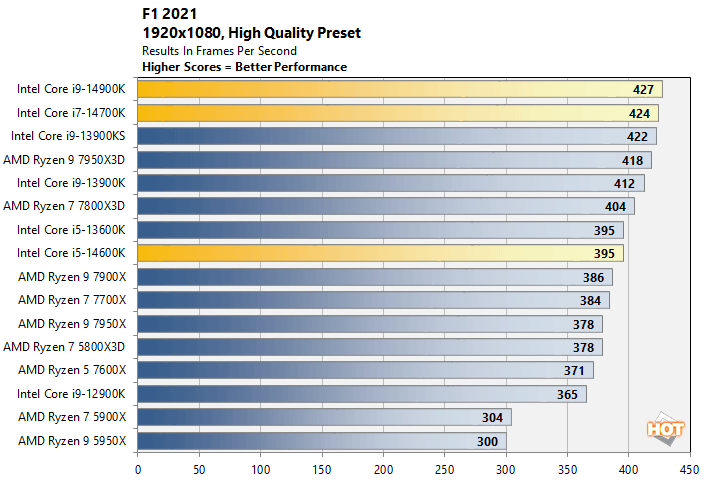
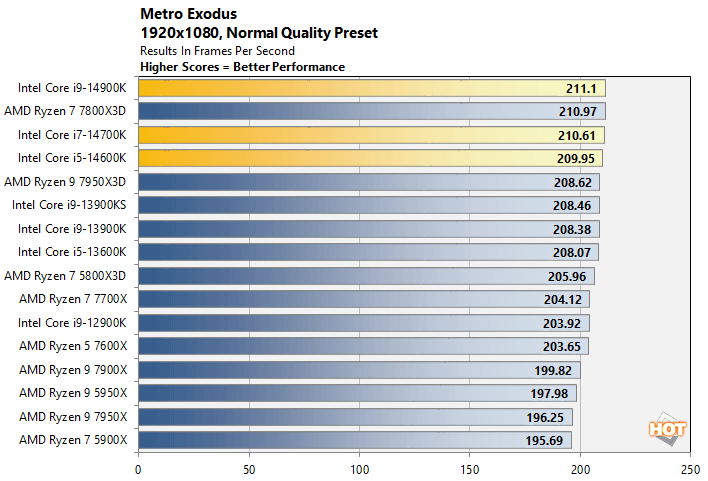
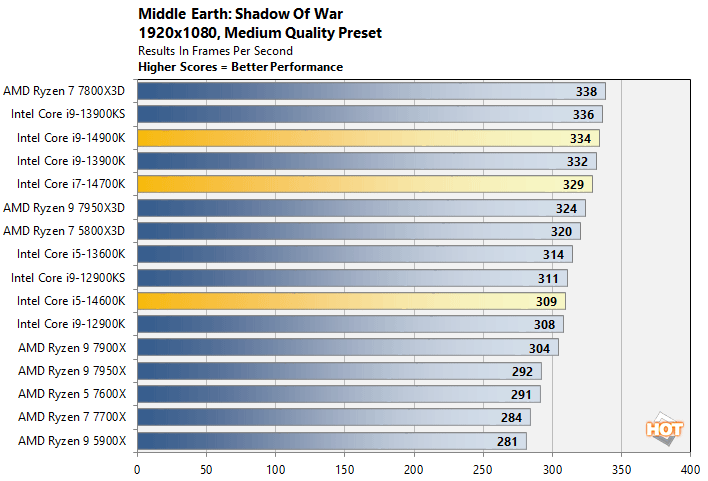
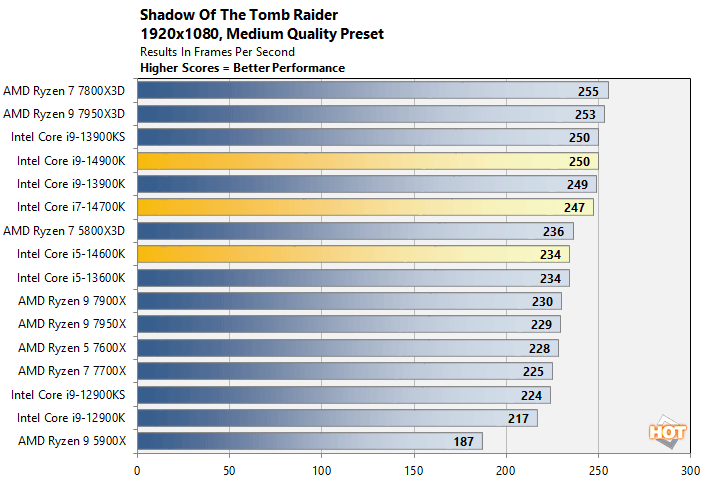
The new 14th Gen Core processors also performed well in all of the "low res" 1080p game tests we ran. The Core i9-14900K typically dropped in right in between the previous-gen K and KS processors, with the Core i7-14700K and Core i5-14600K not too far behind.
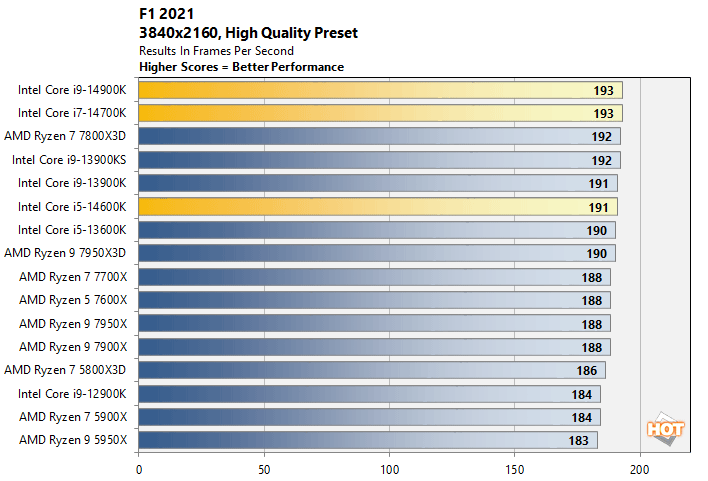
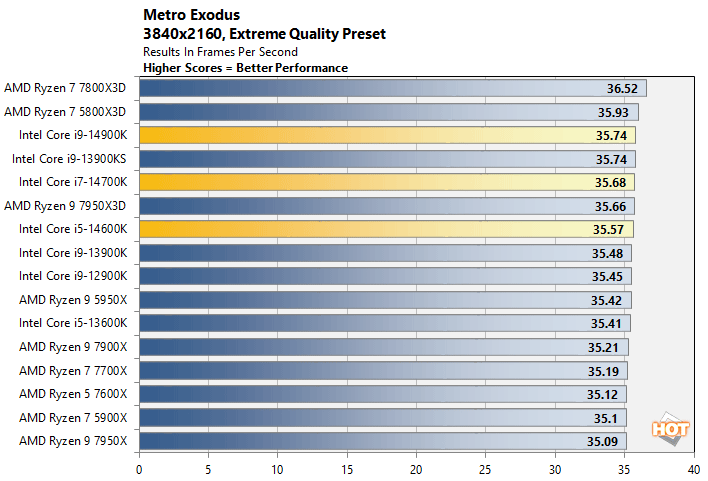
Intel 14th Gen Core Total System Power Consumption
Throughout all of our benchmarking and testing, we also monitored how much power our Intel 14th Gen Core-powered rig was consuming with a power meter, versus the other systems we used for comparison.
Our goal was to give you an idea as to how much power each configuration used while idling at the Windows desktop and while under taxing CPU workloads across one or all cores. Keep in mind, this is total system power consumption being measured at the outlet and not the the individual power being drawn by the CPUs alone.
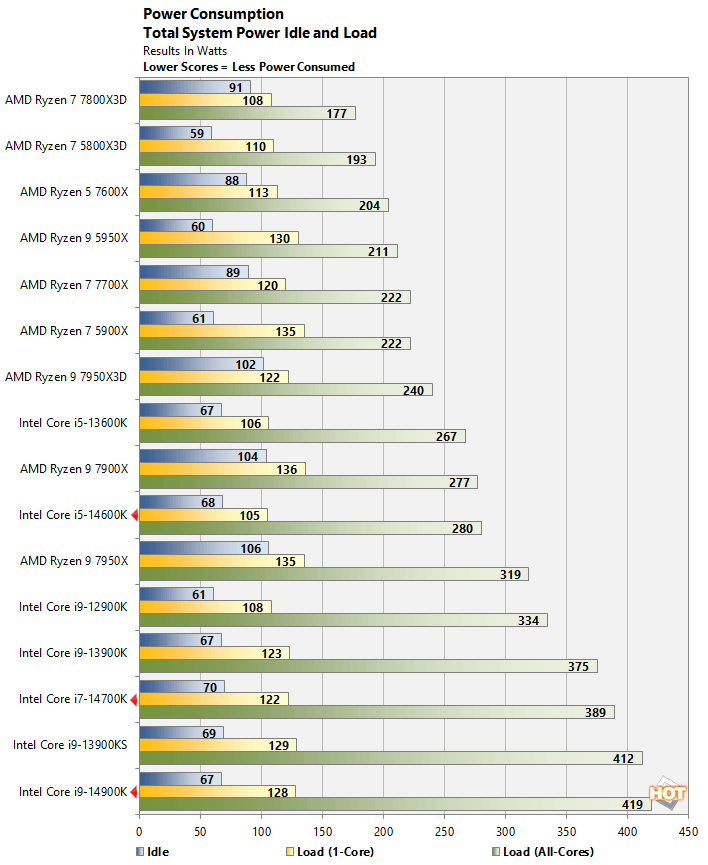
When you boost clocks speeds and tune a platform for top performance, all other things being roughly equal, you're going to see an increase in total power consumption, and that's what happens with these 14th Gen Core processors. The Core i9-14900K consumed the most power overall, with the Core i7-14700K landing somewhere in between the Core i9-13900K and KS. The 14600K is much further down the stack and uses only marginally more power than the 13600K.
How power, frequencies, and thermals play out in a variety of workloads with the Core i9-14900K is detailed in the chart above. All of this data is gathered through a full PCMark 10 run. As you can see, the Core i9-14900K remains nearly pegged at its Turbo frequencies throughout, and temperature and power consumption are relatively tame for most of the run. Once the sustained, multi-threaded POV-Ray workload is engaged at the very end, however, power and thermals peak, with the Core i9-14900K hitting nearly 100°C, even with an AIO liquid cooler installed.
With a simulated gaming workload using 3DMark, CPU frequencies with the 14900K remain pegged at 5.6GHz throughout the run and temps remain moderate for most of the graphics tests. Once the multi-threaded CPU Physics test kicks off in the final stage though, temps increase to over 80°C.

